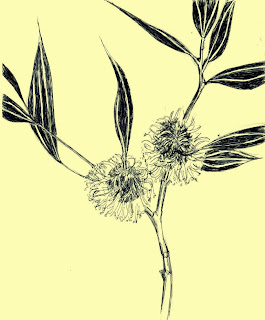SYDNEY (AFP) - The adoptions, driven largely by religious groups in the post-war period, "created a lifelong legacy of pain and suffering", the national apology delivered by Prime Minister Julia Gillard said.
"To you, the mothers who were betrayed by a system that gave you no choice and subjected you to manipulation, mistreatment and malpractice, we apologise," she said to applause from 800 people affected by the policy.
"We say sorry to you, the mothers who were denied knowledge of your rights, which meant you could not provide informed consent.
"You were given false assurances. You were forced to endure the coercion and brutality of practices that were unethical, dishonest and in many cases illegal."
The apology also acknowledged "the profound effects" on fathers and the "sons and daughters who grew up not knowing how much you were wanted and loved".
The decision to offer a formal apology follows a Senate inquiry into forced adoptions found as many as 225,000 babies were removed.
Scores of mothers and children gave evidence at the inquiry which looked at the forcible removal of infants between 1951 and 1975 in Australia, then a conservative and predominantly Christian nation.
Given the social stigma attached to unmarried females at the time, young women who fell pregnant were often sent to stay with relatives or at group houses run by churches or other religious organisations.
Babies were often signed away for adoption before they were born. The inquiry found women were pressured to consent, signatures were sometimes fraudulently obtained, and adoption was presented as inevitable.
Women later struggled to reunite with their children. In many cases adopted babies had their birth certificates issued in their adoptive parents' names, on the grounds that a "clean break" was best for all parties.
In a speech at parliament's Great Hall in Canberra, Gillard said "no collection of words alone can undo all this damage".
"But by saying sorry we can correct the historical record. We can declare that these mothers did nothing wrong."
Christine Cole, the head of the Apology Alliance who lost a child through forced adoption, told ABC television the words were long overdue.
"I had my baby taken from me in 1969, and I think the use of the term forced adoption polarises the actual phenomena of what was going on," she said.
"What was going on was kidnapping children, kidnapping newborn babies from their mothers at the birth, using pillows and sheets to cover their face, drugging them as I was drugged, with drugs like sodium pentothal, chloral hydrate and other mind-altering barbiturates.
"It was cruel, it was punitive and then often the mother was transported like I was away from the hospital so you had no access to your baby."
As part of the apology, the government earmarked Aus$5 million (US$5.18 million) so mental health professionals can better assist in caring for those affected by forced adoption.
It also committed Aus$1.5 million to allow the National Archives to record people's experiences through a special exhibition.
"That way, this chapter in our nation's history will never again be marginalised or forgotten again," said Gillard.
In 2008, former Labor prime minister Kevin Rudd apologised to the "stolen generations" of aboriginal children who were removed from their families by the government and Church missions.




























.jpg)


.jpg)














